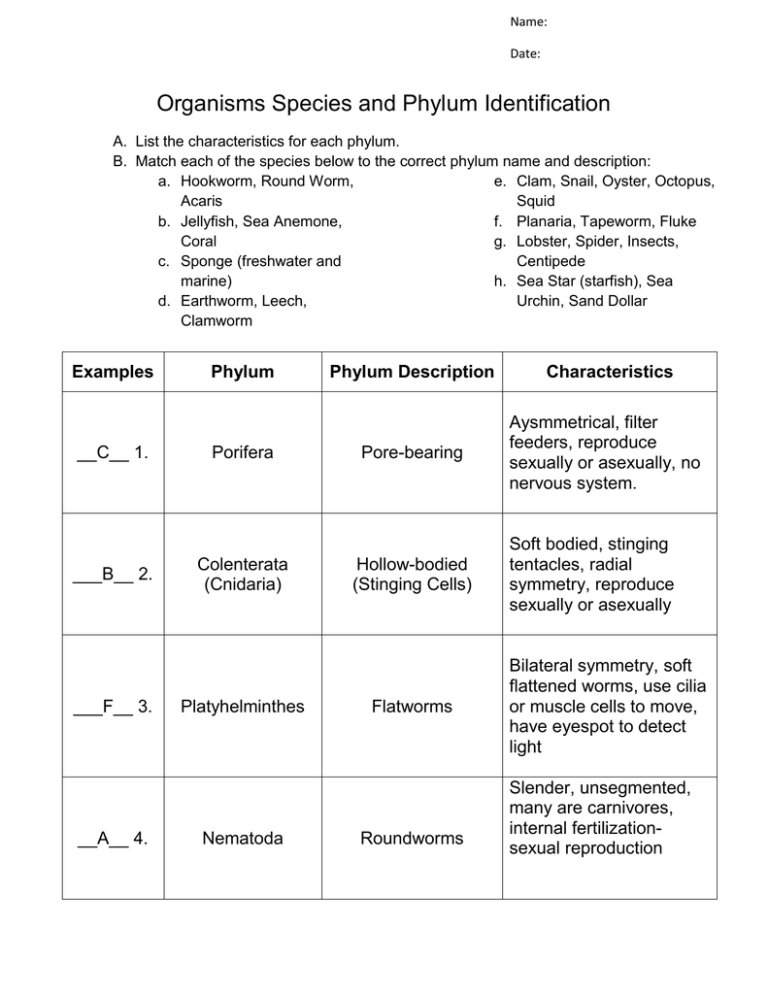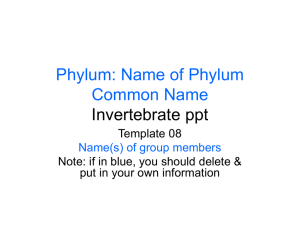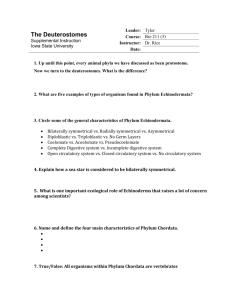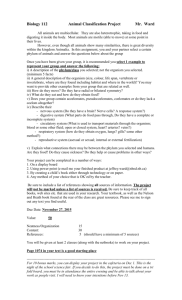Organisms Species and Phylum Identification
advertisement

Name: Date: Organisms Species and Phylum Identification A. List the characteristics for each phylum. B. Match each of the species below to the correct phylum name and description: a. Hookworm, Round Worm, e. Clam, Snail, Oyster, Octopus, Acaris Squid b. Jellyfish, Sea Anemone, f. Planaria, Tapeworm, Fluke Coral g. Lobster, Spider, Insects, c. Sponge (freshwater and Centipede marine) h. Sea Star (starfish), Sea d. Earthworm, Leech, Urchin, Sand Dollar Clamworm Examples __C__ 1. ___B__ 2. ___F__ 3. __A__ 4. Phylum Porifera Colenterata (Cnidaria) Platyhelminthes Nematoda Phylum Description Characteristics Pore-bearing Aysmmetrical, filter feeders, reproduce sexually or asexually, no nervous system. Hollow-bodied (Stinging Cells) Flatworms Roundworms Soft bodied, stinging tentacles, radial symmetry, reproduce sexually or asexually Bilateral symmetry, soft flattened worms, use cilia or muscle cells to move, have eyespot to detect light Slender, unsegmented, many are carnivores, internal fertilizationsexual reproduction __D___ 5. __E___ 6. __G__ 7. _H__ 8. Annelida Mollusca Arthropoda Echinodermata Segmented Worms Soft-bodied Jointed-feet Spiny-skinned Range from filter feeders to predators, closed circulatory system, reproduce sexually, welldeveloped nervous system Soft bodied with external or internal shell, body plan- foot, mantle, shell, and visceral mass ( internal organs), open circulatory system Segmented bodies, exoskeleton, open circulatory system, well developed nervous system, undergo molting. Spiny skin, internal skeleton, water vascular system, tube feet ( suction cup like feet)


